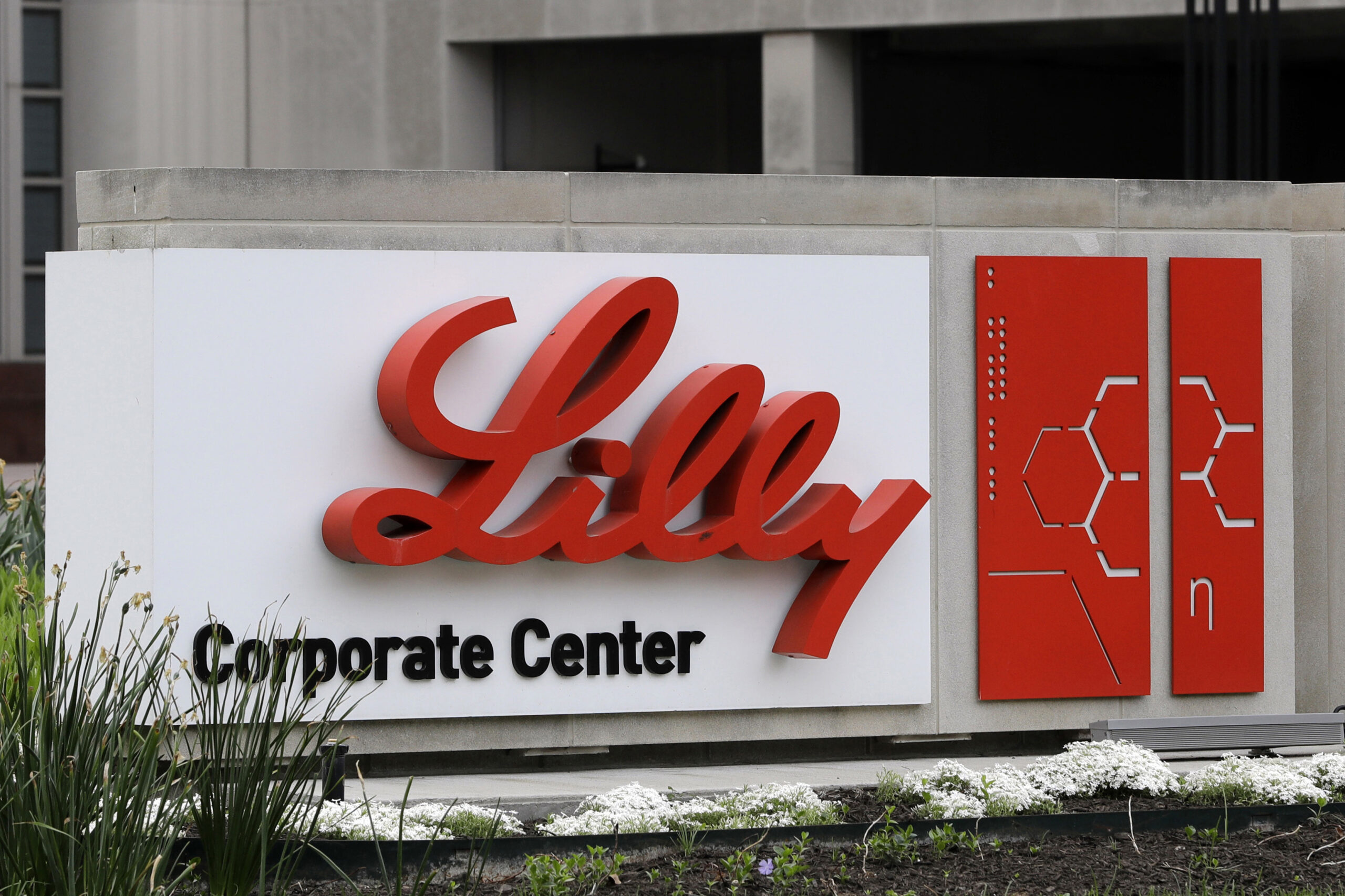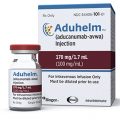
ABOVE PHOTO: A SIGN FOR ELI LILLY & CO. SITS OUTSIDE THEIR CORPORATE HEADQUARTERS in Indianapolis on April 26, 2017. A closely watched Alzheimer’s drug from Eli Lilly won the backing of federal health advisers on Monday, June 10, 2024, setting the stage for the treatment’s expected approval for people with mild dementia caused by the brain-robbing disease. (AP Photo/Darron Cummings, File)
By Matthew Perrone
ASSOCIATED PRESS
WASHINGTON — A closely watched Alzheimer’s drug from Eli Lilly won the backing of federal health advisers on Monday, setting the stage for the treatment’s expected approval for people with mild dementia caused by the brain-robbing disease.
Food and Drug Administration advisers voted unanimously that the drug’s ability to slow the disease outweighs its risks, including side effects like brain swelling and bleeding that will have to be monitored.
“I thought the evidence was very strong in the trial showing the effectiveness of the drug,” said panel member Dean Follmann, a National Institutes of Health statistician.
The FDA will make the final decision on approval later this year. If the agency agrees with the panel’s recommendation, the drug, donanemab, would only be the second Alzheimer’s drug cleared in the U.S. that’s been shown to convincingly slow cognitive decline and memory problems due to Alzheimer’s. The FDA approved a similar infused drug, Leqembi, from Japanese drugmaker Eisai last year.
The slowdown seen with both drugs amounts to several months and experts disagree on whether patients or their loved ones will be able to detect the difference.
But Lilly’s approach to studying its once-a-month treatment prompted questions from FDA reviewers.
Patients in the company’s study were grouped based on their levels of a brain protein, called tau, that predicts severity of cognitive problems. That led FDA to question whether patients might need to be screened via brain scans for tau before getting the drug. But most panelists thought there was enough evidence of the drug’s benefit to prescribe it broadly, without screening for the protein.
“Imposing a requirement for tau imaging is not necessary and would raise serious practical and access concerns to the treatment,” said Dr. Thomas Montine of Stanford University, who chaired the panel and summarized its opinion.
At a high level, Lilly’s results mirrored those of Leqembi, with both medications showing a modest slowing of cognitive problems in patients with early-stage Alzheimer’s. The Indianapolis-based company conducted a 1,700-patient study showing patients who received monthly IV infusions of its drug declined about 35% more slowly than those who got a sham treatment.
The FDA had been widely expected to approve the drug in March. But instead, the agency said it would ask its panel of neurology experts to publicly review the company’s data, an unexpected delay that surprised analysts and investors.
Several unusual approaches in how Lilly tested its drug led to the meeting.
One change was measuring patients’ tau and excluding patients with very low or no levels of the protein. But panelists said there was enough data from other measures to feel confident that nearly all patients could benefit from the drug, regardless of their levels.
In another key difference, Lilly studied taking patients off its drug when they reached very low levels of amyloid, a sticky brain plaque that’s a contributor to Alzheimer’s.
Lilly scientists suggested stopping treatment is a key advantage for its drug, which could reduce side effects and costs. But FDA staff said Lilly provided little data supporting the optimal time to stop or how quickly patients might need to restart treatment.
Despite those questions, many panelists thought the possibility of stopping doses held promise.
“It’s a huge cost savings for the society, we’re talking about expensive treatment, expensive surveillance,” said Dr. Tanya Simuni of Northwestern University. She and other experts said patients would need to be tracked and tested to see how they fare and whether they need to resume treatment.
The main safety issue with donanemab was brain swelling and bleeding, a problem common to all amyloid-targeting drugs. Most cases identified in Lilly’s trial were mild.
Three deaths in the donanemab study were linked to the drug, according to the FDA, all involving brain swelling or bleeding. One of the deaths was caused by a stroke, a life-threatening complication that occurs more frequently among Alzheimer’s patients.
FDA’s panel agreed that those the risks could be addressed by warning labels and education for doctors as well as medical scans to identify patients at greater risk of stroke.
















Leave a Comment